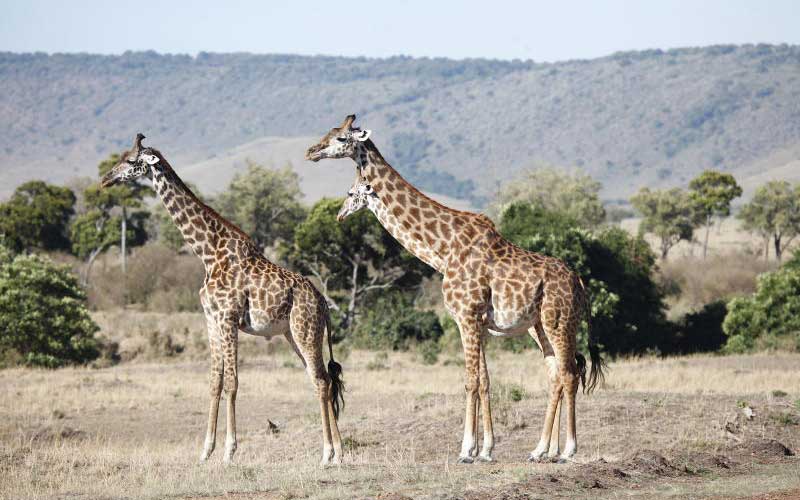×
The Standard e-Paper
Smart Minds Choose Us

Giraffes at the Maasai Mara. [Wilberforce Okwiri, Standard]
Most Kenyans have seen giraffes in their lives, and are familiar with their images all over billboards and in shops. Many of us even have childhood memories of traveling with our parents to famous sites in our country to view the majestic creatures. It is perhaps something we take for granted, however, these creatures - and many other animals we are accustomed to sharing our land with - are extremely rare in most parts of the world.